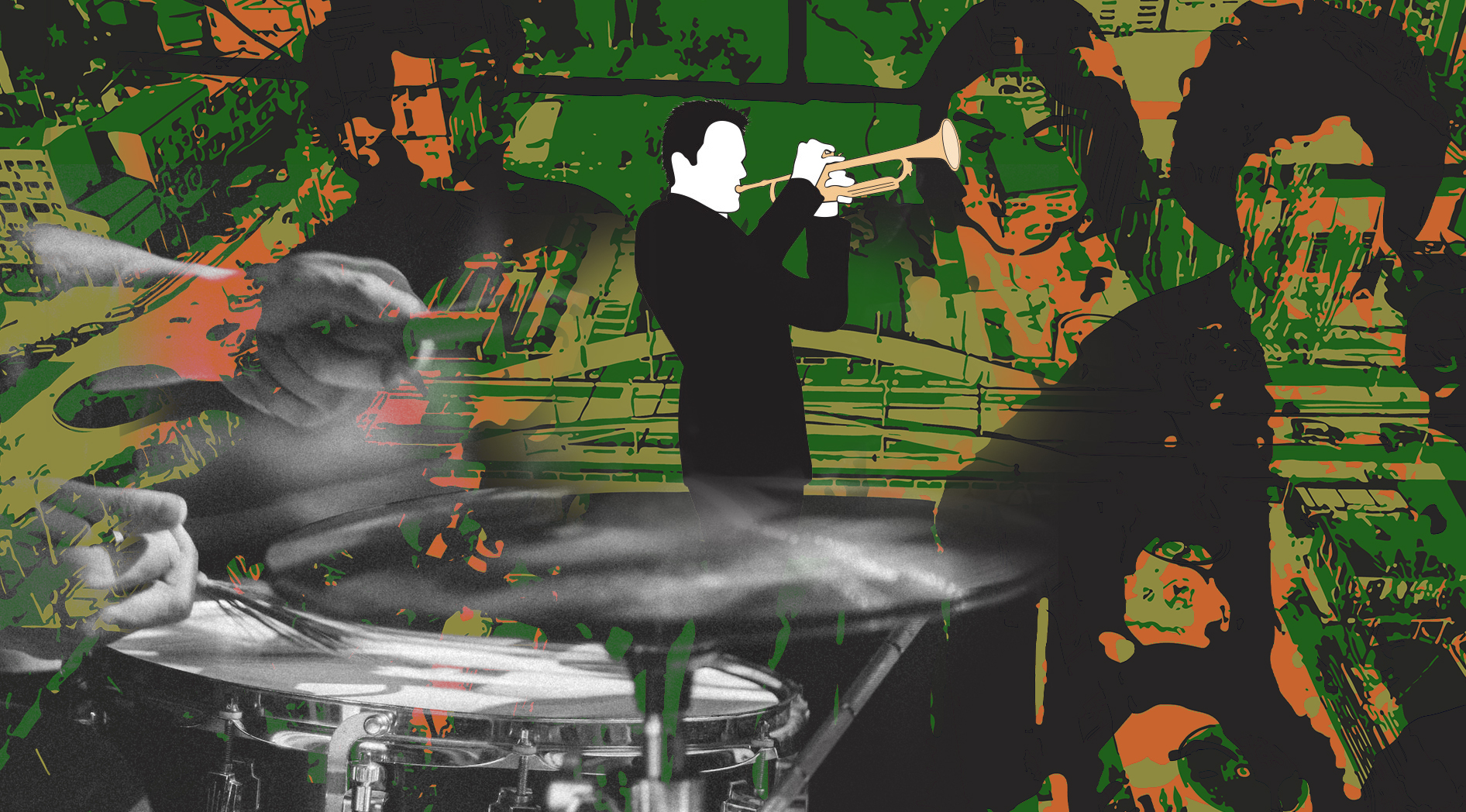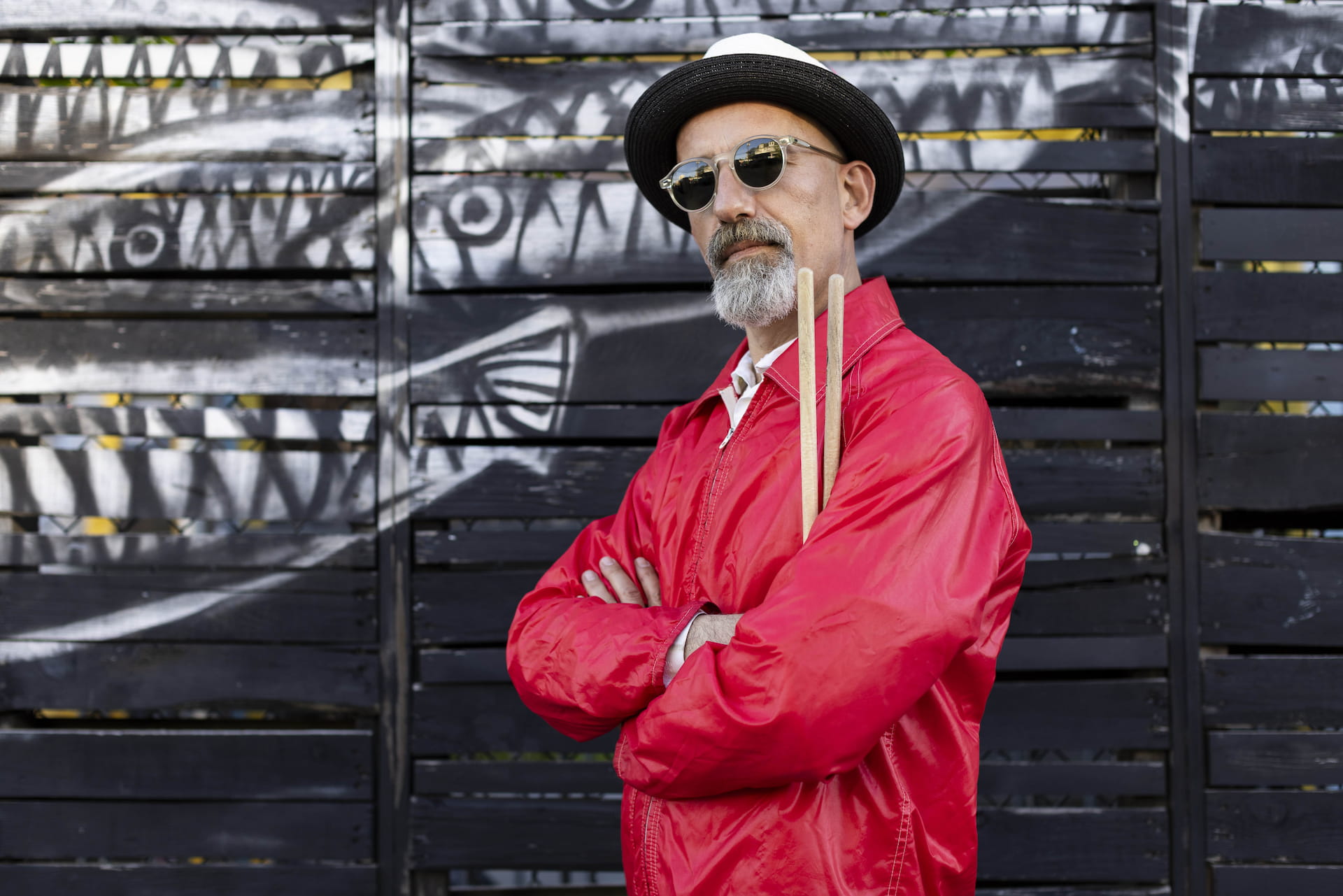
My jazz story
Reflections on jazz, my musical career and desire to elevate Kosovo’s jazz scene.

Me at the age of 9, playing the keyboard. Photo: authors archive.
Through my journey as a student and professional, there has always been a personal resonance with what jazz represents beyond just the music.

From my time at KUG. Photo: authors archive.
The current state of Kosovo’s jazz scene raises important questions about the diversity and transparency of its curatorial practices.

Credit: Anna Yatskevich ©
I want to be able to explore this musical connection with audiences in my home country, however domestic structures prevent me from doing so.

Lamy Istrefi
Lamy Istrefi is a NYC-based drummer, percussionist,and composer, originally from Mitrovice, Kosovo. A protégé of Idris Muhammed and Milford Graves, he has been a member of Grammy Award-winner Joe Lovano’s Quartet since 2013. He attended the University of Music and Dramatic Arts Graz (KUG) in Austria before moving to the US. Photo: Anna Yatskevich ©.
This story was originally written in Albanian.